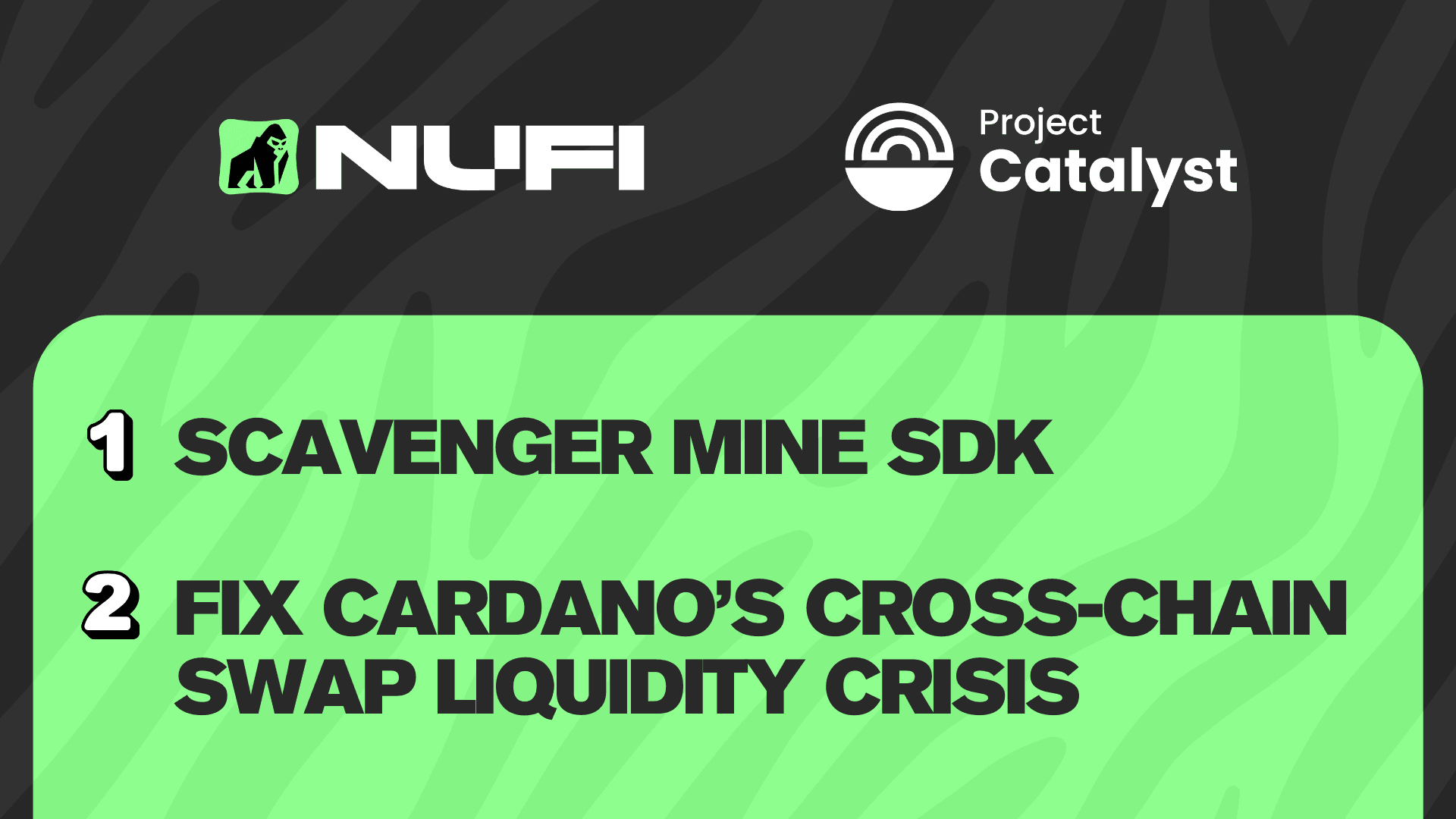What is a Wallet Address? Understanding the Basics
8 min read
Jun 24, 2024
A wallet address is an essential part of the crypto world, serving as a unique identifier for sending and receiving digital assets.

Wallet addresses have become an integral part of the Web3 landscape. As a cryptocurrency user, understanding the significance of wallet addresses is crucial.
This comprehensive guide will explore the fundamentals of wallet addresses, their importance, and the essential security measures you need to know to ensure the safety of your digital assets.
Introduction to Wallet Addresses
Wallet addresses are the unique identifiers that allow you to send, receive, and manage your cryptocurrency holdings. They serve as the digital equivalent of a bank account number, enabling you to interact with the blockchain network and participate in various cryptocurrency transactions.
What is a Wallet Address?

A wallet address is a string of characters, typically a combination of letters and numbers, that represents a specific location on the blockchain where your cryptocurrency is stored.
It functions as a destination for receiving digital assets and a source for sending them to other individuals or platforms.
It looks something like this: 0xb2D4C641832ada6a59C66Ffd585E96797D44E426
How a Wallet Address Works in Cryptocurrency Transactions
Wallet addresses are generated using complex cryptographic algorithms that ensure the uniqueness and security of each address. When you create a new wallet, the software or platform generates a unique address for you, which then becomes the point of access to your digital assets.
This address is the key to your cryptocurrency holdings, and it is essential to keep it secure and private.
Here are a few basics you should understand
Sending and Receiving Funds: Imagine your wallet address as your digital mailbox. When you want to send cryptocurrency to someone, you need their wallet address, just like you need their mailing address to send a letter.
Verification and Confirmation: Once you send cryptocurrency to someone, the transaction needs to be verified and confirmed. This process involves crypto miners or network validators, who check that the transaction is valid and complies with the rules of the cryptocurrency network. Once verified, the transaction is confirmed and added to the blockchain, which is like a digital ledger that records all transactions.
Privacy and Security: Your wallet address is a unique identifier that helps keep your transactions secure. While wallet addresses are public and can be shared with anyone, your private keys, which are like secret codes, are needed to access and control your funds. It's essential to keep your private keys safe and not share them with anyone.
How to Get a Wallet Address

Generating a wallet address is a straightforward process, and it can be done through various cryptocurrency wallets like NuFi Wallet, exchanges, or other similar platforms.
The specific steps may vary depending on the platform you choose, but the general process typically involves the following:
Create a Wallet: Begin by setting up a cryptocurrency wallet, which can be a software, hardware, or web-based wallet, depending on your preferences and security requirements.
Generate a New Address: Once you have your wallet set up, you can generate a new wallet address by following the prompts provided by the wallet interface.
Verify the Address: Always double-check the generated address to ensure it is correct and matches the blockchain network you are working with.
How to Find a Wallet Address
If you're using a Chrome Extension like NuFi, look for the "Receive" button to find your wallet address. Desktop wallets and hardware wallets have similar processes.
Connect your hardware wallet to your computer and find your address in the "Receive" section. Once you've found it, copy your address carefully and use it to receive cryptocurrency.
What are Wallet Address Examples?
There are several types of wallet addresses, each with its own characteristics and use cases. Some of the most common types include:
Bitcoin Address: A Bitcoin address is a unique identifier used to receive and send Bitcoin transactions. Example: 3FZbgi29cpjq2GjdwV***HuJJnkLtktZc5
Ethereum Address: An Ethereum address is a unique identifier used to receive and send Ether (ETH) and other Ethereum-based tokens. An example of an Ethereum address is 0xb794f5ea0ba39494ce839613fffba74279579268
Altcoin Addresses: Addresses for various altcoins, such as Solana (SOL), Cardano (ADA), and other altcoins, follow their respective blockchain protocols and have their own unique address formats.
Wallet Address Formats
Wallet address formats vary depending on the cryptocurrency you're using. For example, Bitcoin addresses typically start with "1" or "3" and consist of alphanumeric characters.
Ethereum addresses, on the other hand, begin with "0x", followed by a string of hexadecimal characters. Different cryptocurrencies may have different address formats to ensure compatibility with their respective blockchain networks.
Crypto wallets automatically generate the appropriate address format based on the cryptocurrency you're using.
How Do I Use a Wallet Address?
Using a wallet address is straightforward once you've found it. To receive cryptocurrency, simply provide your wallet address to the sender. They'll use this address to initiate the transaction, sending the digital assets directly to your wallet.
When sending crypto, enter the recipient's wallet address carefully to ensure accuracy. Double-check the address to avoid any mistakes, as transactions are irreversible once confirmed on the blockchain.
Many wallet apps even offer features like QR code scanning to simplify the process of sharing and inputting wallet addresses, making transactions quick and hassle-free.
Security Tips for Wallet Addresses
Ensuring the security of your wallet addresses is paramount to protecting your cryptocurrency holdings. Here are some essential security measures to consider:
Use a Secure Wallet: Choose a reputable and secure cryptocurrency wallet, whether it's a software, hardware, or web-based wallet, to store your digital assets.
Keep Your Private Keys Safe: Never share your private keys with anyone, as they provide direct access to your cryptocurrency holdings.
Enable Two-Factor Authentication: Activate two-factor authentication (2FA) on your wallet to add an extra layer of security to your account.
Keep Your Wallet Software Updated: Regularly update your wallet software to ensure you have the latest security patches and features.
Avoid Public Wi-Fi: Refrain from accessing your wallet or conducting cryptocurrency transactions on public Wi-Fi networks, as they can be vulnerable to eavesdropping and hacking attempts.
NuFi Wallet Addresses

NuFi wallet is your safe and secure multichain crypto wallet, which you can use to swap crypto for crypto, stake cryptocurrencies, or simply access the Web3 space with our social login. Easily access millions of digital assets across multiple blockchains.
You can install NuFi wallet as a browser extension in 10 seconds and use it for free. Try it out now.
Common Mistakes to Avoid with Wallet Addresses
To ensure the smooth and secure management of your cryptocurrency, it's essential to be aware of the common mistakes to avoid when dealing with wallet addresses:
Sending Funds to the Wrong Address: Double-check the recipient's wallet address before sending any cryptocurrency to avoid irreversible losses.
Sharing Private Keys: Never share your private keys with anyone, as they provide full access to your digital assets.
Falling for Phishing Scams: Be cautious of any suspicious emails, messages, or websites that ask for your wallet information, as they may be part of a phishing scam.
Storing Large Amounts on Exchange Wallets: Avoid keeping large amounts of cryptocurrency on exchange wallets, as they are more vulnerable to hacks and security breaches.
Neglecting Regular Backups: Regularly backup your wallet information, including your private keys and recovery phrases, to ensure you can access your funds in case of device failure or loss.
Frequently Asked Questions About Wallet Addresses
Q: Is it safe to give out your wallet address?
A: Yes, sharing your wallet address is safe; it's necessary for sending and receiving cryptocurrency. However, sharing your private keys is not safe. Make sure you know the difference between a wallet address and private keys.
Q: Is a wallet ID the same as a wallet address?
A: Yes, wallet ID and wallet address are typically used interchangeably in the context of cryptocurrency.
Q: Are Bitcoin wallets public?
A: Yes. Every address's balance and all of its transactions are visible to everyone. Bitcoin addresses aren't completely anonymous because users typically have to divulge their identities in order to obtain products or services.
Q: Are crypto wallet addresses case sensitive?
A: No. The network addresses of, for example, Arbitrum, Optimism, Base, Blast, and Fantom or Ethereum (ETH) are case-insensitive and can be entered in any combination of uppercase and lowercase without impacting the transaction. In any case, it's always best to copy and paste your address, not type it manually.
Q: Can wallet addresses be traced?
A: Yes, wallet addresses can be traced on the blockchain, providing transparency and accountability.
Q: Can a Binance wallet address be traced?
A: Yes, like other cryptocurrency wallet addresses, Binance wallet addresses can be traced on the blockchain.
Q: What happens if you lose your cryptocurrency wallet address?
A: You can’t really lose your crypto wallet address. It’s always available in your crypto wallet. Just copy and paste any wallet address you want to use.
Q: Is it possible for your wallet address to be stolen?
A: No, wallet addresses cannot be stolen, but if someone has access to your private keys, they can access your wallet and steal your crypto holdings.
Q: Should I report a stolen or lost wallet address?
A: While you can't report a stolen or lost wallet address, you should take immediate action to secure your funds by contacting the appropriate authorities or seeking assistance from your wallet provider.
Conclusion
Wallet addresses are the foundation of cryptocurrency transactions, enabling you to send, receive, and manage your digital assets.
By understanding the significance of wallet addresses, their different types, and the essential security measures, you can confidently navigate the world of cryptocurrency and safeguard your financial future.
Recent Posts

NUFI's Project Catalyst Fund15 Proposals
NUFI wallet is proposing two things: create a Scavenger Mine SDK, and fix Cardano's cross-chain swap liquidity crisis.
Read More

NuFi wallet x OneKey: best-in-class security while you put your crypto to work
NuFi wallet and OneKey: a potent combo for crypto users who want best-in-class hardware wallet security while staking, trading, and using dApps.
Read More